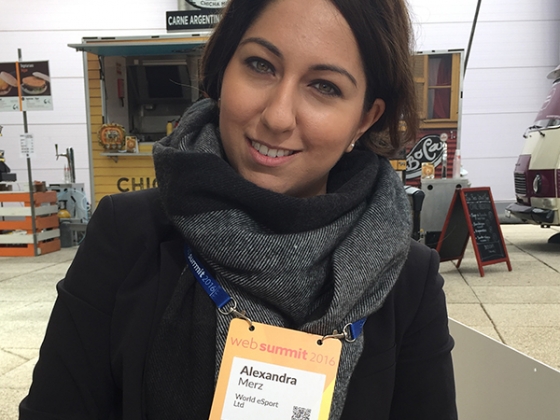World eSport, the platform aiming to be a Facebook and Linkedin bridge for the esports and gaming communities, has added a new legal services feature.

World eSport was founded by Alexandra Merz and Marc Berthold, and the former has a background in law. You can find out more and do your own research here, or you can continue below and read Alexandra’s answers to our questions about this new feature.
Esports Insider: You’ve a legal background yourself…where do you see the most urgent need for such services in esports today?
Alexandra: I completed my LLB Law degree at Nottingham Law School in the UK. After that I decided that I needed to specialise in a field which will be crucial in the future. As such I went on to do my LLM in Intellectual Property and IT Law at King´s College London. I quickly understood how much Intellectual Property rights matter, especially in the digital world.
Having worked for a major American contractor for a while, I decided to go into esports and gaming with my co-founder Marc ‘Vazy’ Berthold via World eSport. We also created legal.worldesport.com, which we run alongside World eSport.
“Intellectual Property rights can make you or break you”
Ever since the platform got up and running, we’ve had a lot of legal inquiries coming in. These vary and are anything from player agreements to broadcasting rights. I definitely see an urgent need for legal consulting services in regards to contracts and Intellectual Property. When teams start thinking and playing competitively, they often have the issue of players leaving or issues arising from undefined roles and responsibilities. Player contracts go back at least 10 years in esports, but their usage is becoming ever more important – especially with the booming state of the industry.
Intellectual Property rights can make you or break you. It doesn’t only cover copyright and putting the small c icon next to your logo or brand! It goes much deeper. It covers the logos you designed for your team, the code you develop for your website, the patent you may need because you found an incredible technique to increase the comfort of your gaming mouse, and the list goes on and on.
Esports Insider: What made you decide to add a legal services element into World eSport?
Alexandra: Through the inquiries coming in via World eSport and having already advised various gamers and organisations in an informal environment, we believe that World eSport Legal Services will add great value to the esports and gaming community.
“The esports industry is a fast and dynamic industry, with very young players who undergo enormous pressure due to travel schedules, training regimes, team atmospheres and education”
We are not a mainstream law firm. We combine the strength and knowledge of our team. Over 10 years of professional gaming experience is invaluable as this represents the actual practical side of the industry. The excellent legal knowledge and dedication to give fair and honest advice to the community is another. We are not a consultancy which intends to rip off our clients – rather we truly want to help fill the legal gaps.
Esports Insider: Any thoughts about esports pros’ legal professional recognition country to country?
Alexandra: The Guardian ran a story last year on whether esports players should be recognised as athletes. I agree with the statement that it takes more than just awareness to transform communities and to have esports ‘legalised’ and pro gamers recognised as athletes.
It needs the whole framework in place and this is where I see the challenge. The esports industry is a fast and dynamic industry, with very young players who undergo enormous pressure due to travel schedules, training regimes, team atmospheres and education. The demands are high.
“The esports industry is growing fast but it lacks structure. All the major stakeholders within the industry need to help build it”
If you take into account some of the reasons why France has recognised esports players as athletes, it’s because the working hours caused issues for gamers and simply did not comply with the law. In addition to the self-employed contracts, which were used for professional players, there was a revenue cap of €33,100 (£28,000) per year. This created a major issue because some players could have easily surpassed this through sponsorship and events but were capped due to the contracts. In my opinion, this is the beginning of the necessary esports framework we need in place.
The esports industry is growing fast but it lacks structure. All the major stakeholders within the industry need to help build this structure and this is why we created World eSport, and now, World eSport Legal Services.

